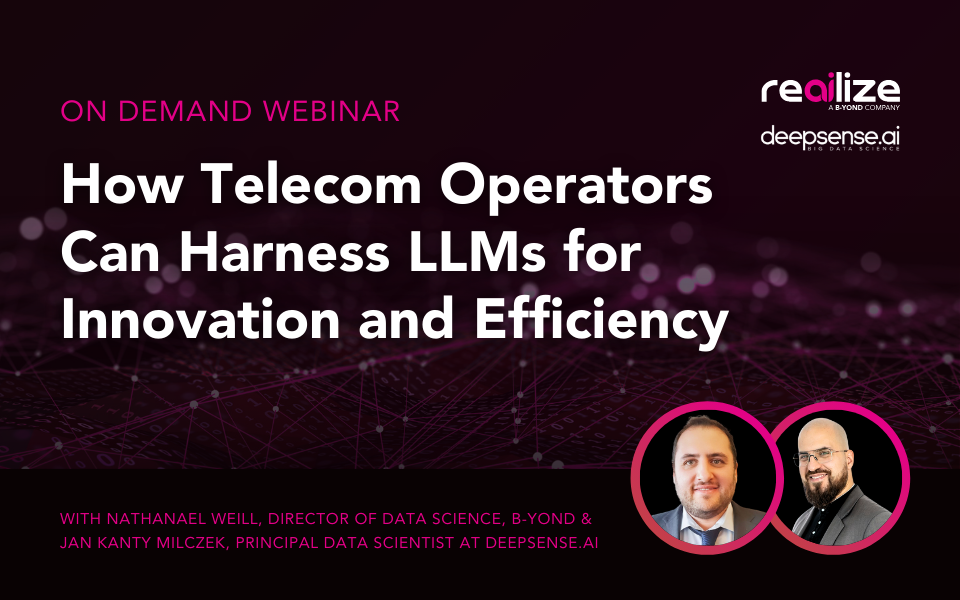Practical strategies to make a real business impact with large language models
Large Language Models (LLMs) are reshaping the possibilities for telecom operators.
From generating richer insights to powering smarter automation, they open new opportunities to optimize services, reduce costs, and create differentiated customer experiences.
Yet knowing where and how to apply LLMs is not always straightforward.
The scale of telecom data, the complexity of network environments, and the challenge of operational integration make careful planning essential. Organizations need practical guidance to move beyond experimentation and start building measurable results.
This webinar explores how LLMs can be applied to real-world telecom operations. You’ll learn where they deliver the greatest value today, how transfer learning extends their reach, and what steps operators can take to implement them effectively in production environments.
What You’ll Learn
- Why LLMs matter: Their potential impact on telecom operations and services.
- Data generation and transfer learning: How LLMs create insights and adapt to telecom needs.
- Real-world use cases: Current approaches that are driving measurable results.
- Implementation roadmap: Practical steps for bringing LLMs into your organization.
Watch now and explore how LLMs can help you build innovative strategies to optimize your network performance.
Nathanael Weill, Director of Data Science at B-Yond
Nathanael Weill leads three data science teams at B-Yond, specializing in AI-powered software for packet capture analysis and diagnostics.
With prior roles at CGI and LANDR, he has developed products using machine learning and deep learning for diverse applications, from audio processing to recommendation systems. Since 2018, Nathanael has also lectured in McGill University’s Data Science Certificate program.
Jan Kanty Milczek, Principal Data Scientist at deepsense.ai
Jan Milczek is a founding member of deepsense.ai and an accomplished data scientist with expertise in algorithms and artificial intelligence. He focuses on improving and extending modern models through advanced optimization techniques.
Jan has won multiple international data science competitions, including NOAA’s Whale Recognition, and is an active contributor to the AI community as both a presenter and panelist.


